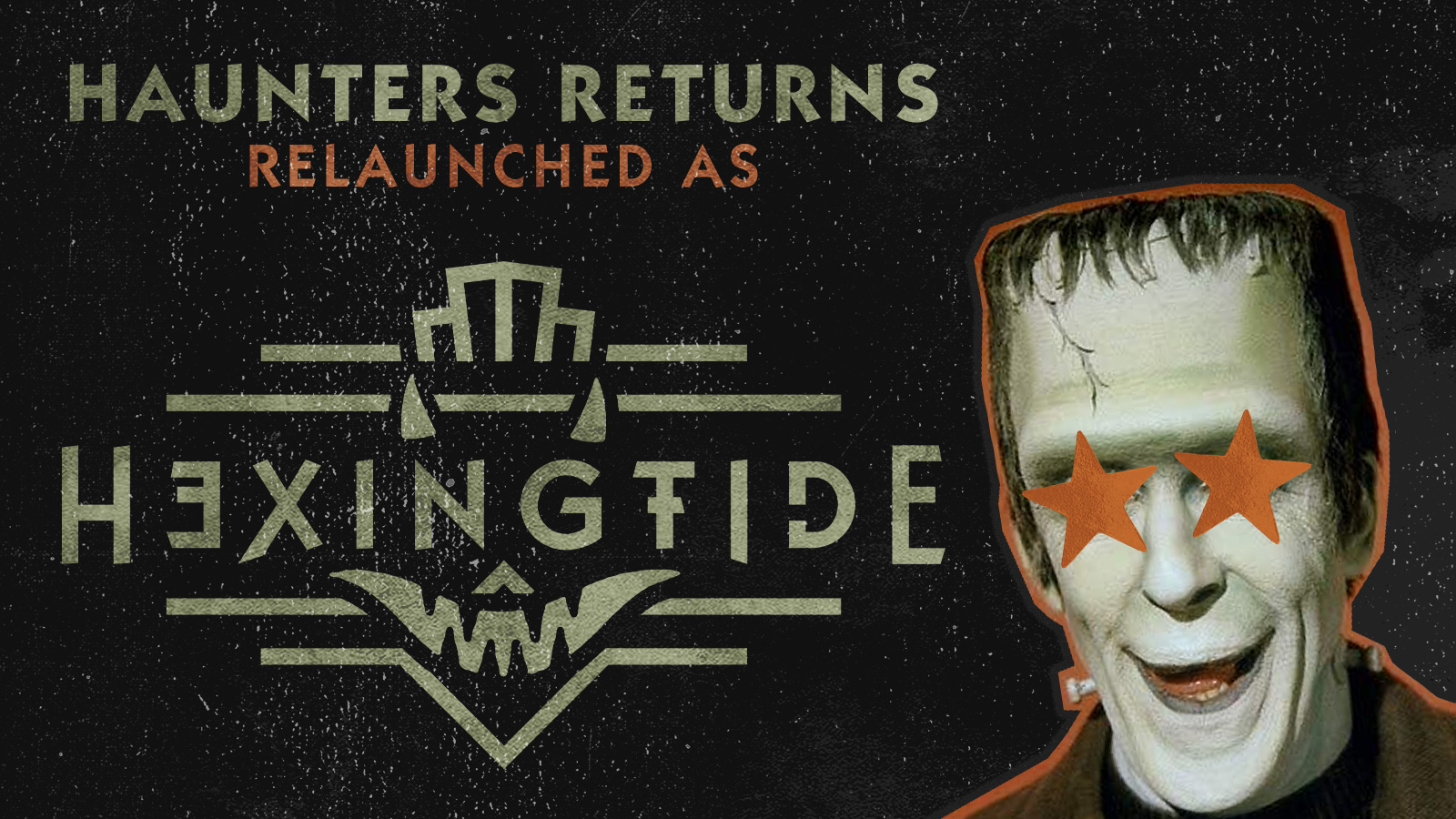TL;DR? I’ve revisited my monster heroes RPG and rebranded it as Hexingtide. The rules have been radically overhauled, clarified, and streamlined – and are now free for download and playtesting on Itch!
In the fall of 2020, I was working on the first draft of the RPG that would evolve into Long XVIth. At that time, I was working from an increasingly divergent OSR foundation that was flummoxing my confidence in getting the historical feel right – and smoothing out the mechanics.
I pressed pause on the historical RPG and spent a few weeks feverishly designing some rules that would let me play out the monster stories I love from Hellboy & the Mignolaverse, the World of Darkness, and the like.
I began playtesting the game I called Haunters in November 2020.
As many first drafts are wont to, it didn’t go so well! No rules survive their first contact with players (right?), and the issues exposed with Haunters drove me to the 15XX skirmish rules I was working on… and Long XVIth.
And now, two years on, I’m adrift in creative calm seas for Long XVIth and being lured by the siren songs of monsters, folklore, and action-adventure!
Why the Change
(i.e. What was Wrong with Haunters?)
In a word? It was obtuse.
Obtuse in the way Luke Crane’s writing is.
I thought I was being clever in approaching the game with three broad classes, inspired by how Whitehack approaches class design. Except I wasn’t.
Players were reading the rules and responding in-game like I was prattling on about “Artha” and “Ob.” The conceptual structure and terminology of how characters were built and how those rules were engaged with during play was too confusing.
More confusion awaited the players when it came to track damage, negative conditions, and positive influences.
I was inspired by Amit Moshe’s City of Mist and its status & spectrum mechanics as a way to drape a numerical mechanic onto just about any status. Haunters took a similar approach: one that streamlined the moving parts from City of Mist, but at the cost of larger integers to track.
It also confused my players.
I still think Amit’s model is outstandingly great. I’ve refined my own take on his idea with Long XVIth and think it works pretty well now.
But was it working for Haunters – especially at the rules-lite level I was aiming for? Resoundingly no.
About Hexingtide

Hexingtide represents my learnings from running Haunters, inspired by minimalist RPGs such as Black Hack, Down We Go, Cthulu Dark, and Trophy Dark.
It retains the core inspiration of monster heroes from Hellboy, Nocturnals, the World of Darkness, classic Universal Monsters, and the League of Extraordinary Gentlemen, but presents its rules, mechanically, very differently than the first iteration of Haunters:
- Minimalist twelve page zine format
- Rules are hyper-focused on the most monster-y parts of the PCs: their powers (Bonuses), their inhuman vulnerabilities and threats (Banes), and how they remain tied to the mundane, mortal world of humanity (Bonds).
- Characters are built with a point buy using open-ended descriptors, allowing for maximum narrative flexibility by the players and the GM. Think Fate Aspects.
- Uses a single die: you’ll need just one d10, really!
- A hint of built-in worldbuilding in the Chymoi, a pseudo-elemental system of Blood, Phlegm, Ichor, Black Bile, and Rot.
What’s Up with the Name Change?
A decade ago, I spent a few years developing a dieselpunk fantasy setting with the same name. Though mostly an exercise in worldbuilding, I had dabbled with writing an RPG setting or fiction for it.
The project has sat dormant for the last four years, unlikely to be revived.
But damn… I loved that name.
So here’s my attempt to get some use out of it.
Hexingtide Downloads & Links:
Hexingtide is now in public playtesting and free to download on Itch. I’m also looking for playtesters – to either join me for one-off games or to run Hexingtide for their friends.
- Playtest rules, character sheets, & pregen characters:
https://willphillips.itch.io/hexingtide - Playtest sign up (to join me for a game and get updates about the rules):
https://airtable.com/shry2SLqZ4ijAW9og - Feedback form:
https://airtable.com/shrTUmPOzx6RJBXDh
I welcome your thoughts and feedback!

